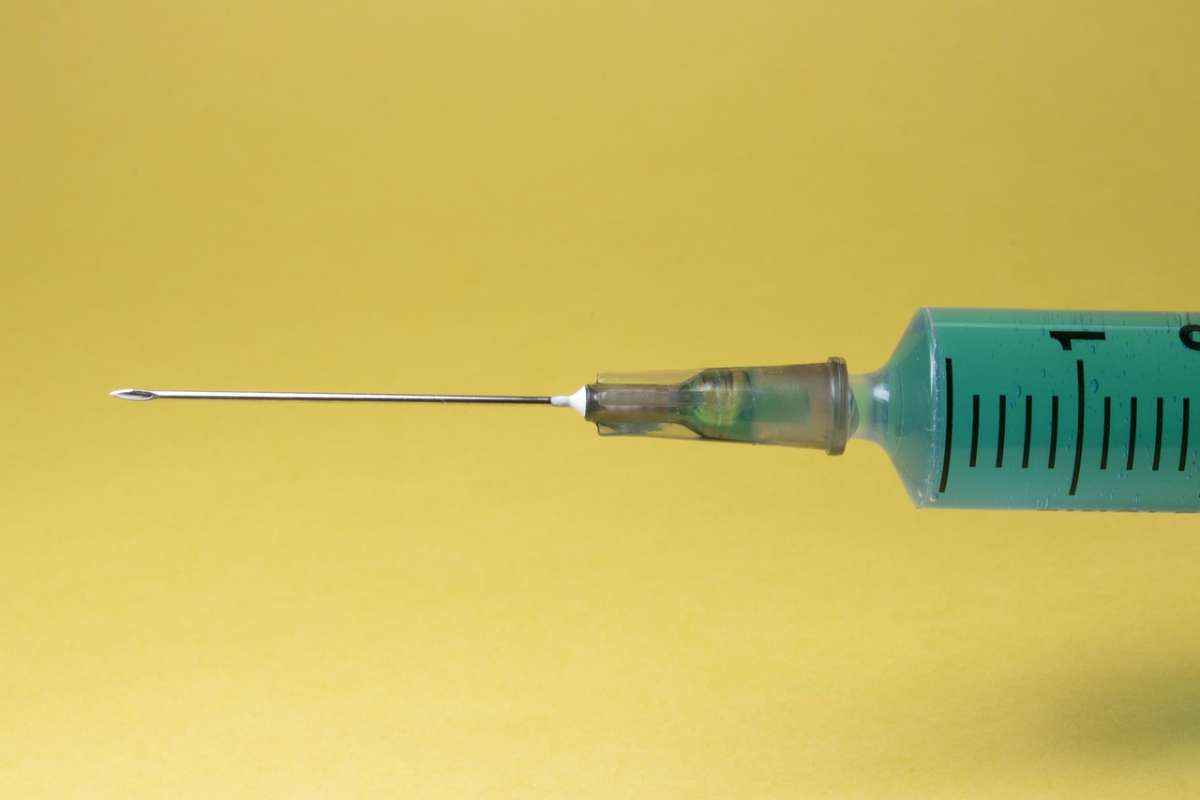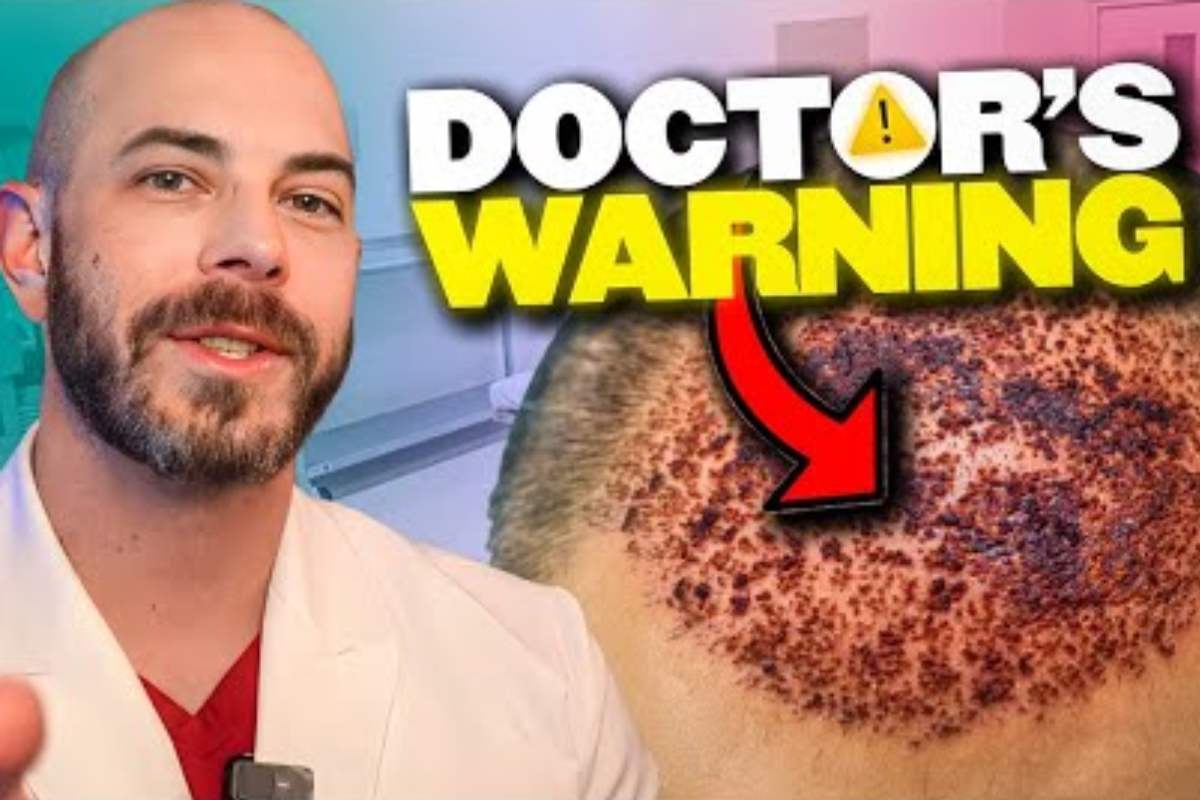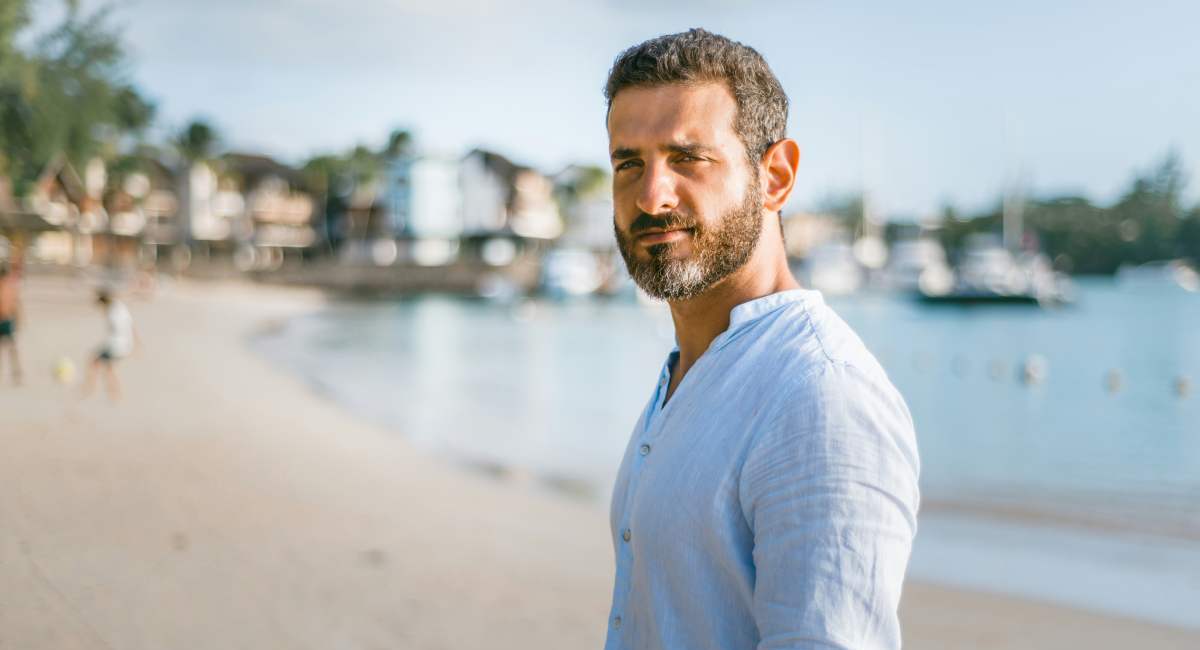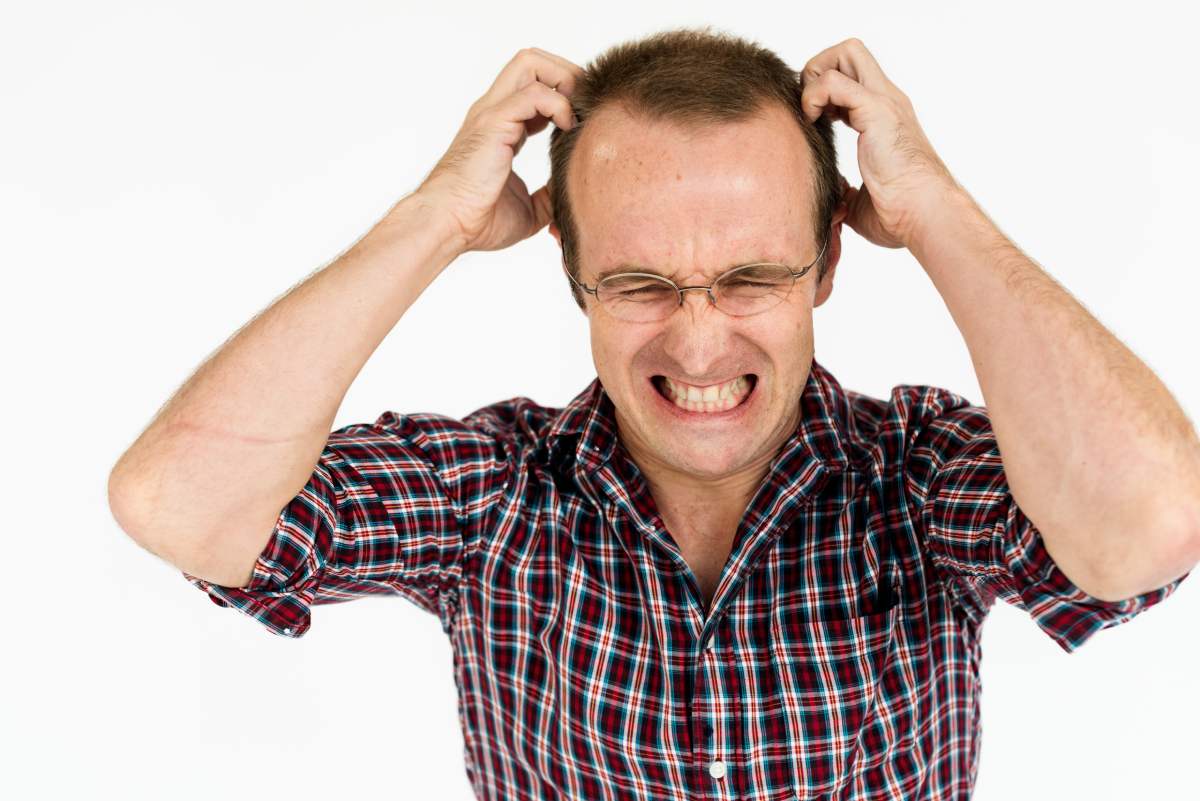Hair transplant procedures are a very safe procedure as long as you’re being treated by a qualified doctor, but that doesn’t mean that there aren’t side effects that you should be aware of.
One common side effect that we get asked about is numbness on the scalp after undergoing a hair transplant procedure. While some numbness is to be expected immediately after the transplant, due to the numbing medication injected into the scalp, some patients notice numbing lasting months after the surgery.
Different people react differently to the procedure and the anesthesia, so not everyone will experience the same duration of numbness in their scalp, but it can be concerning when you have no feeling or altered sensation on your head after surgery. Thankfully, in most cases, the numbness is only temporary and will go away after the anesthesia wears off.
While numbness in the scalp does happen after a hair transplant, let’s look at why it might happen, how long it could last, and when you should contact your doctor if you’re concerned.
How Common is Scalp Numbness After a Hair Transplant?
Scalp numbness is a common side effect immediately after a hair transplant, affecting anyone who undergoes the procedure. Some numbness may persist for a few weeks but this is usually temporary and often resolves on its own within a few weeks to month. Numbness beyond a month is thankfully rare with today’s techniques. The extent and duration of numbness can vary from person to person, with some individuals experiencing more prolonged numbness than others. However, it’s important to note that permanent numbness is rare.
What Causes Numbness After a Hair Transplant?
The initial numbness is caused from the lidocaine, or other local anesthetic, that was used to numb the area before the surgery, but this will wear off in a few hours.
The longer lasting numbness occurs because the nerves in the scalp are disrupted during the transplant procedure. As the scalp heals, these nerves begin to regenerate, leading to the gradual return of sensation. In the early healing stages, 2-4 weeks, rather than complete numbness, patients may feel itching, tingling, or altered sensation while the scalp heals. You know that feeling when your foot falls asleep, and it feels like you have pins and needles in it as it “wakes up?” Your scalp can have a similar feeling where it feels like it’s not quite asleep and not quite awake.
This is particularly true of the donor area after FUE but can also occur in the recipient zone where the grafts were planted. Some patients report a prickly sensation that resolves in about a month. While the sensation of numbness can be concerning, it is generally a normal part of the healing process after a hair transplant. Decades ago, when FUT excisions were wider and deeper, nerve damage happened more often, and patients would end up with areas on the back of the scalp that were completely numb. Oftentimes this was permanent. Thankfully, this rarely happens today.
If you experience scalp numbness after a hair transplant, it’s important to follow your surgeon’s post-operative care instructions and to be patient, as the numbness should improve over time. It’s never wrong to contact your surgeon with any concerns like this during the post-op period so they can address your concerns.
How Long Does Numbness Last After a Hair Transplant?
The duration of numbness after a hair transplant can vary from person to person. In most cases, the numbness begins to improve within a few weeks to months after the procedure. However, some individuals may experience lingering numbness for a longer period. It’s important to remember that the nerves in the scalp need time to heal and regenerate, so patience is key.
Can Numbness Be Permanent After a Hair Transplant?
While numbness after a hair transplant is usually temporary, there is a very small risk that it could become permanent. Permanent numbness is rare and is more likely to occur if there is significant damage to the nerves during the transplant procedure. However, most cases of numbness resolve on their own as the scalp heals and the nerves regenerate.
This is another reason why it is important to only have your hair transplant performed by a board-certified dermatologist. The more experience and the more knowledge they have about the procedure will help reduce the likelihood of side effects after the fact.
When to Be Concerned and Call Your Doctor
As we mentioned above, numbness after a hair transplant is usually temporary and part of the normal healing process, there are some situations where you should contact your doctor.
If you experience severe or worsening numbness, or if the numbness is accompanied by other concerning symptoms such as severe pain, swelling, or discharge from the incision site, it’s important to seek medical attention promptly. Your doctor can assess your symptoms and determine if any further intervention is needed to ensure proper healing.
Factors That May Increase the Risk of Numbness After a Hair Transplant
Several factors can potentially increase the risk of experiencing numbness after a hair transplant. One factor is the extent of the transplant procedure. Larger transplant sessions or more extensive surgeries may involve more manipulation of the scalp tissue and nerves, increasing the likelihood of temporary numbness. Additionally, the skill and technique of the surgeon can play a role, as more experienced surgeons may be able to minimize nerve damage during the procedure. Dr. Krejci performs the FUT using what’s called “Minimal Depth Excision” so that the least amount of tissue is removed, and the donor scalp has the least amount of disruption or surgical trauma possible. For FUE she utilizes needles of approximately 1 mm in diameter to harvest each graft which allows removal of individual follicles and disturbs as little of the nearby hairs and tissue as possible. Utilizing the most advanced techniques makes permanent nerve damage exceedingly rare.
Another factor is the individual’s own physiology. Some people may naturally have a higher risk of experiencing numbness due to the way their nerves are positioned or how they heal. Pre-existing medical conditions such as diabetes or peripheral neuropathy can also increase the risk of nerve-related complications after surgery.
Finally, factors such as smoking, nutrition or poor overall health can affect circulation and tissue healing, which may impact nerve function and increase the risk of numbness.
Treatments and Remedies for Numbness After a Hair Transplant
In most cases, the numbness experienced after a hair transplant will resolve on its own as the scalp heals and the nerves regenerate. However, there are some treatments and remedies that may help alleviate symptoms or speed up the healing process.
One common approach is to gently massage the scalp, which can help improve blood flow and promote nerve regeneration. It’s important to use gentle pressure and avoid rubbing too vigorously, as this could potentially irritate the scalp or incision sites. However, You would NOT start this during the initial healing phase while any stitches or scabbing is still present, the first 2 weeks. Massage is only recommended if you are noticing numbness after 3-4 weeks.
Some individuals may also find relief from over-the-counter pain medications such as ibuprofen, which can help reduce any discomfort associated with the numbness. However, it’s important to consult with your doctor before taking any medication, especially if you have any underlying health conditions or are taking other medications.
In some cases, your doctor may recommend other treatments or therapies to help manage numbness after a hair transplant. These may include nerve stimulation techniques or, in rare cases, prescription medications to help manage nerve-related symptoms. It’s important to follow your doctor’s recommendations and to be patient, as numbness after a hair transplant is usually temporary and should improve over time.
Dealing With Numbness After a Hair Transplant
Numbness is a common side effect immediately after a hair transplant, but it is usually temporary and part of the normal healing process. Most people will experience some degree of numbness in the scalp after a hair transplant, which typically improves over time as the scalp heals and the nerves regenerate.
While the sensation of numbness can be concerning, it is generally not a cause for alarm and should not affect the final outcome of the transplant.
It’s important to follow your surgeon’s post-operative care instructions and to be patient during the recovery process. If you experience persistent or worsening numbness, or if the numbness is accompanied by other concerning symptoms, it’s important to contact your doctor. They can evaluate your symptoms and determine if any further intervention is needed to ensure proper healing.
Overall, while numbness after a hair transplant can be uncomfortable, it is usually a temporary inconvenience on the path to achieving your desired results.







